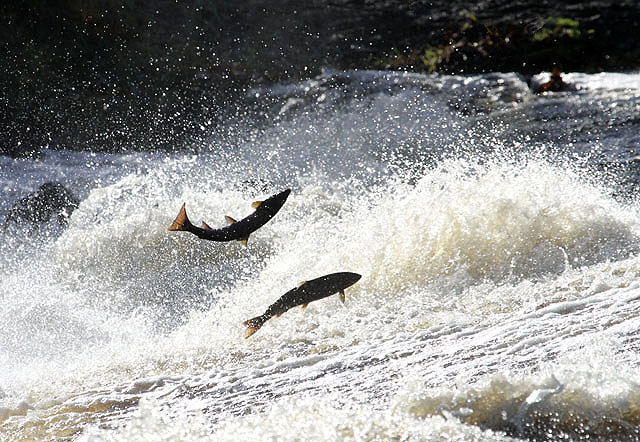Biomedical research is, in a nutshell, the use of animals in medical research. However, it is not as simple as a few words on a computer screen; it is a very cruel and unscientific process that totally defies the animals' rights.
I am going to write this post in the form of a Q&A:
Q: How are laboratory animals treated?
A: Very poorly! They are considered to be scientific models, not living animals. Dr. Jane Goodall said of chimps, "hundreds have been condemned to life imprisonment (up to sixty years) in five-foot by five-foot laboratory cages". I have heard many stories from countless sources of animals being tortured and even senselessly abused by animal experimenters.
In
The Plague Dogs, a novel by Richard Adams, Snitter and Rowf (the main characters, who are dogs) are subjected to cruel, unscientific experiments, such as brain surgery to see how delusional Snitter can get, and holding Rowf down in a tank of water to see how long it takes for him to drown (they also see if they can revive him later). Although
The Plague Dogs is a work of fiction, Adams does mention in the Author's Note that every experiment mentioned in the book is real and has been performed. Many of the dogs in the story were also subjected to poisoning, over-exercising, and countless other experiments. I recommend reading the book-- from what I've told you it sounds pretty depressing, but soon the dogs escape the laboratory and go on an adventure together. It is not a kids book, either. It has some very difficult language that will leave you reaching for the dictionary every so often.
Besides, I think being shut up in a cage for your whole life is bad enough!
Q: Isn't using animals in experimentation the only way to find out which drugs are okay for humans?
A: No, and it is actually is very ineffective. Every species (humans included) has a different cellular and molecular make-up, and it is on this level that diseases occur. What might be okay for rats can be absolutely toxic for humans. For example, an asthma medication called Isuprel (even the NAME sounds toxic!) killed 3500 people in Great Britain. It had been tested on animals, but it had not caused the same effects on humans as it had on other animals. And, according to
Sacred Cows and Golden Geese, a book on the scientific fraud of animal experimentation, 15% of people admitted to hospitals are there because they have had problems with their medication.
Q: So, what are the alternatives?
A: Here is a list of the alternatives:
- using human volunteers
- using cells in test tubes
- autopsies
- surveys of people with the disease
- genetic research
- diagnostic imaging
- post-marketing drug surveillance (PMDS)
- computers
Q: Why are animals used, then?
A: For a few reasons. According to a pamphlet I got a few years ago (
Animals In Research by University of Ottawa), "biomedical research involving animals remains essential to the better understanding of biology and physiology of higher organisms in medicine's continuing quest to advance the treatment and prevention of disease." So they are calling humans "higher organisms". But I wonder what defines one organism as "higher" than another? Surely humanity just views itself as the best because it does not understand other creatures. At the time I got the pamphlet I was at a Philosophy and Animal Rights mini-enrichment course. A guest speaker came in to tell us about why animal testing was good. She said not only that humans were "higher organisms" but also that within the animal kingdom there were higher and lower species as well. This was solely based on the size of the animal. She said that first they test on mice, then rabbits, then dogs, and then humans. To be honest with you, I find this philosophy more than a little sickening. Is the size classification merely because the bodies are easier to dispose of if they are smaller? If we followed this rule, would we test the drugs on children first, adults last?
Other reasons include: false beliefs about animals being good models and experiencing no emotion, as well as people wanting to protect their career. If I was told I could earn a billion dollars per hour by being a vivisector, I wouldn't do it. Even though I could help a lot of animals with a billion dollars, it would be too against my moral values to cause one animal suffering even for a short while. Of course, many people have such a desperation to hold on to their career that they will fight for anything to keep it. Some people consider this a worthy cause, but why would we kill untold numbers of animals for the sake of letting a few people keep their jobs?
Q: So, what can we do about it?
A: 1) Boycott drugs that were tested on animals, especially those that you don't really need, like hand-lotion and birth-control. Try to use natural remedies, instead. Medical hand-lotion, for example, can be replaced with a non-animal-testing brand. Painkillers can be replaced with a natural painkiller, like white willow bark or turmeric. See
http://www.canada.com/ottawacitizen/story.html?id=91e0211d-62aa-47b2-bdd8-dcf1a81132bb for information on why conventional painkillers are unsafe, and for ideas on what to use instead.
2) Raise awareness! Post your own anti-animal testing article on your blog, webpage, or social networking site. Tell people about it. Post links to my blog wherever the topic does (or doesn't) appear!
3) Sign a petition against animal testing. Here are a few ones you could start with:
http://www.therainforestsite.com/clickToGive/campaign.faces?siteId=3&campaign=AirCanadaMonkeys
http://www.petitiononline.com/pawsclub/petition.html
http://www.gopetition.com/petitions/protest-against-animal-testing.html
Thank you for your support!



